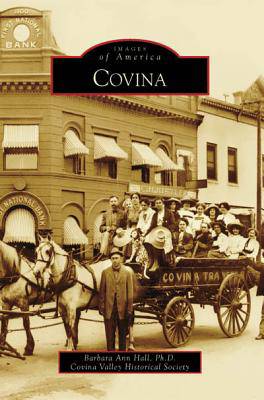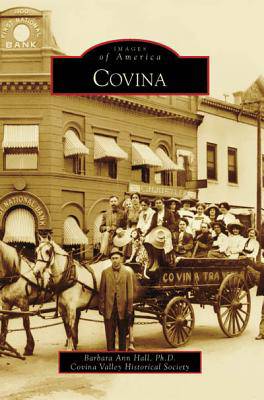
Bedankt voor het vertrouwen het afgelopen jaar! Om jou te bedanken bieden we GRATIS verzending (in België) aan op alles gedurende de hele maand januari.
- Afhalen na 1 uur in een winkel met voorraad
- In januari gratis thuislevering in België
- Ruim aanbod met 7 miljoen producten
Bedankt voor het vertrouwen het afgelopen jaar! Om jou te bedanken bieden we GRATIS verzending (in België) aan op alles gedurende de hele maand januari.
- Afhalen na 1 uur in een winkel met voorraad
- In januari gratis thuislevering in België
- Ruim aanbod met 7 miljoen producten
Zoeken
Omschrijving
Covina began as a coffee plantation carved out of Rancho La Puente, which John Rowland had purchased from California's Mexican government. Rowland later shared the land with his friend and partner William Workman, and after Rowland's death, his widow, Charlotte, sold 5,500 acres to Julian and Antonio Badillo, on which they attempted unsuccessfully to grow coffee. Joseph Swift Phillips purchased 2,000 acres of the Badillo land, subdivided the tract, and laid out Covina's town site. Covina came to grow, process, and ship eight percent of California's citrus, transforming into a farming community that was neither rural nor urban. Residents established cultural, social, and civic organizations, founded a scientific study group and a literary society, and even built an opera house.
Specificaties
Betrokkenen
- Auteur(s):
- Uitgeverij:
Inhoud
- Aantal bladzijden:
- 128
- Taal:
- Engels
- Reeks:
Eigenschappen
- Productcode (EAN):
- 9780738555553
- Verschijningsdatum:
- 3/10/2007
- Uitvoering:
- Paperback
- Formaat:
- Trade paperback (VS)
- Afmetingen:
- 181 mm x 233 mm
- Gewicht:
- 290 g

Alleen bij Standaard Boekhandel
+ 69 punten op je klantenkaart van Standaard Boekhandel
Beoordelingen
We publiceren alleen reviews die voldoen aan de voorwaarden voor reviews. Bekijk onze voorwaarden voor reviews.









